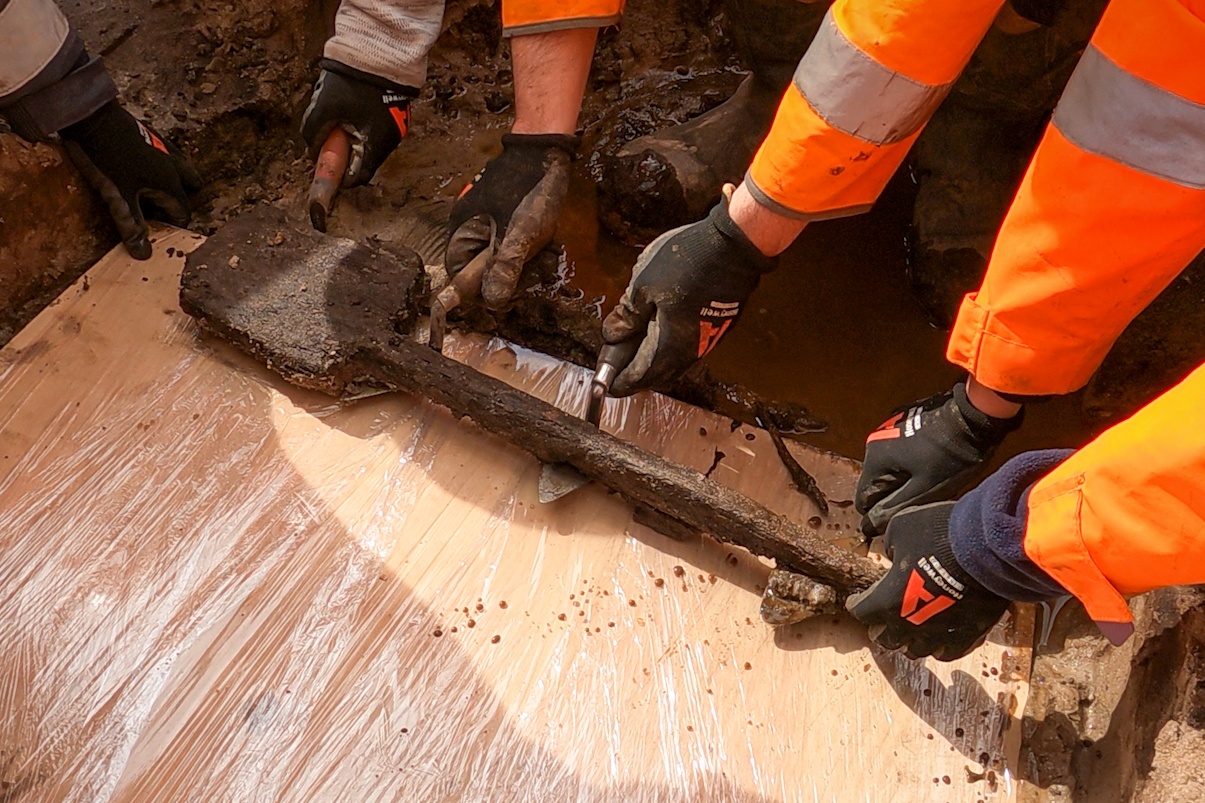Archaeologists have announced the discovery of a remarkable wooden artifact that has been preserved for about 3,500 years since the Bronze Age. The prehistoric object, a kind of wooden spade, was found during excavations conducted in the Arne Moors—a significant area of wetlands and heathland located in the county of Dorset, southwest England. The object is thought to be one of the oldest and most complete prehistoric wooden tools ever found in Britain.
It is extremely rare for organic material, such as wood, to survive for so long, requiring very particular conditions. "The spade is a really rare survival for the Bronze Age period," Ed Treasure, an environmental archaeologist with British firm Wessex Archaeology, which conducted the excavations, told Newsweek . "It is likely that similar tools were more widely used in this period, yet wooden objects such as this can only survive in specific burial conditions.
This is what makes the spade such an exceptional discovery. It provides with a glimpse into human activity within the wetland landscape in the Moors at Arne." The preservation of the wooden spade can be explained by the condition of the ground at the site where it was found.
"The spade has preserved due to the waterlogged conditions on the site," Treasure said. "This is where the ground remains permanently saturated with water, thereby excluding oxygen, and inhibiting processes of decay." Analysis of the spade has revealed that it is made of oak and hewn from one soli.


















